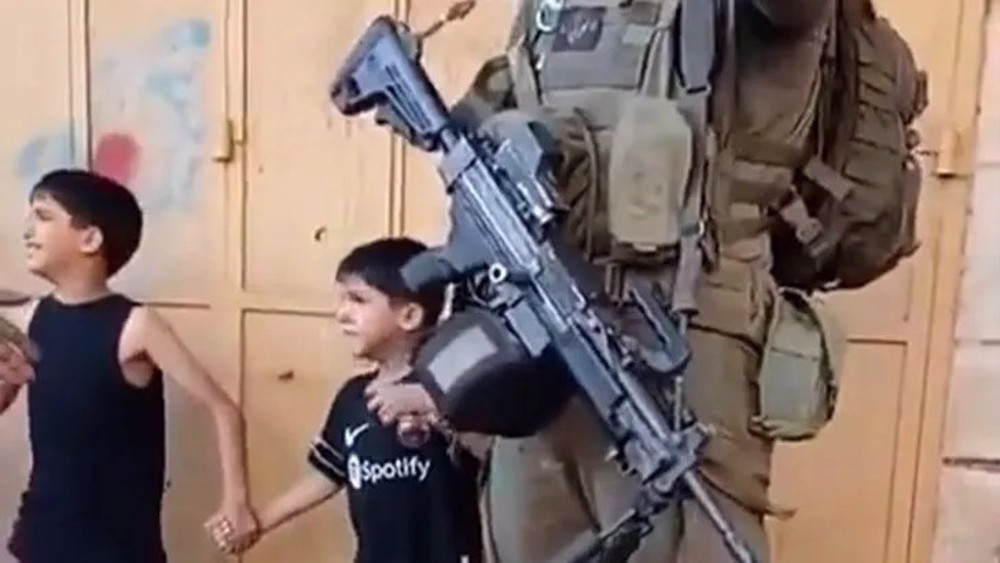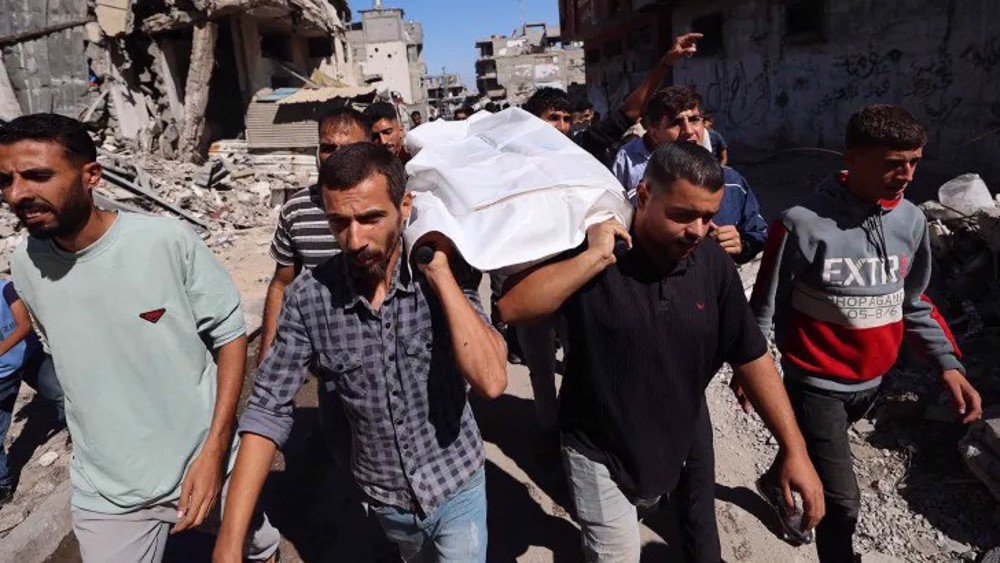Gaza Strip faces dangerous fiscal crisis: World Bank
The World Bank says the besieged Gaza Strip has the world’s highest unemployment and is facing a “dangerous fiscal crisis,” nearly one year after Israel’s latest war against the coastal enclave.
In a report released on Friday, the World Bank said the current situation was the result of the ongoing Israeli blockade and its recent deadly 50-day war, which lasted from July 8 to August 26, 2014.
“The impact of the blockade imposed in 2007 was particularly devastating, with GDP losses caused by the blockade estimated at above 50 percent and large welfare losses," the World Bank said in its report.
According to the report, the unemployment rate in Gaza increased in 2014 “to reach 44 percent,” a figure the World Bank says is “probably the highest in the world.”
The poverty rate in Palestinian territories has also reached 39 percent.
The World Bank urged the international community to take action and implement reforms in order "to avoid a dangerous fiscal crisis" in Gaza.
The report said that of the $3.5 billion pledged by the international community for Gaza's reconstruction just 27.5 percent, or nearly $1.0 billion, had been handed out so far.
The report was released ahead of the biannual meeting of the Ad Hoc Liaison Committee (AHLC), which is responsible for coordinating international donor support for the Palestinians. The report is expected to be presented during the meeting.
This comes a day after the International Monetary Fund (IMF) called on the international community to step up efforts aimed at expediting the construction of the besieged Gaza Strip and to boost the economy in the blockaded Palestinian territory as well as the occupied West Bank.
{{Gallery}}
As a result of Israel’s deadly attack on the impoverished coastal enclave, some Gaza families are still living in schools serving as temporary homes, makeshift shelters and partially destroyed homes.
The majority of the internally displaced Gazans, however, live under harsh conditions in caravans made out of metal.
“We are fed-up with these living conditions. They are unbearable. During the winter it was freezing cold and now it is hot like hell in here. It gets really hot inside these shelters; they are metal boxes. We feel as if we are living inside an oven not mentioning the crawling rodents and insects while we sleep at nights,” a homeless Palestinian woman (shown below) told Pres TV.

Months after the end of the Israeli war, homeless Gazans demand that their houses be rebuilt as pledged donor countries have failed to fulfill their commitments to reconstruct Gaza.
“There is no construction taking place and we are still homeless. The shelters that we are living in are too small and unsuitable for humans. We were told by the UN after the war that our homes will be rebuilt but that has not happened. The world has totally forgotten us,” a Palestinian man (shown below) told Press TV.

The Israeli war on Gaza last summer claimed the lives of more than 2,140 Palestinians, mostly civilians, including women, children, and the elderly. Hundreds of buildings and homes were also damaged.
The deadly aggression against the Gaza Strip came as Palestinians were already struggling with a 2007 Israeli-imposed blockade on Gaza, which has caused a serious decline in the standard of living, unprecedented levels of unemployment and unrelenting poverty.
SZH/AR/NN/HMV
Iran keeps wheat import subsidies despite cutting other food supports
Venezuelan military stands with acting president after US kidnapping of Maduro
VIDEO | Press TV's news headlines
VIDEO | Protesters in Toronto slam US kidnapping of Venezuelan president
Israeli troops detain, intimidate Palestinian toddler in West Bank
Iran says its investments in Venezuela face no major risk
Make ‘right decision’ or face more US pressure, Rubio tells Venezuela’s Rodriguez
VIDEO | General Soleimani honored in Kashmir, Kargil









 This makes it easy to access the Press TV website
This makes it easy to access the Press TV website